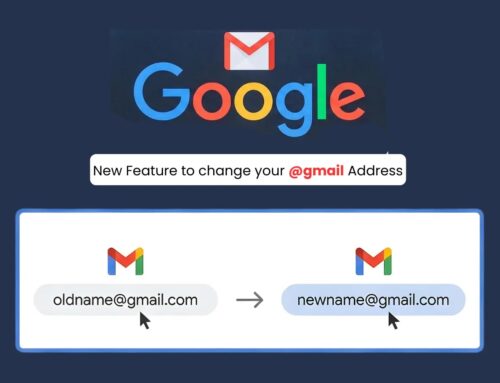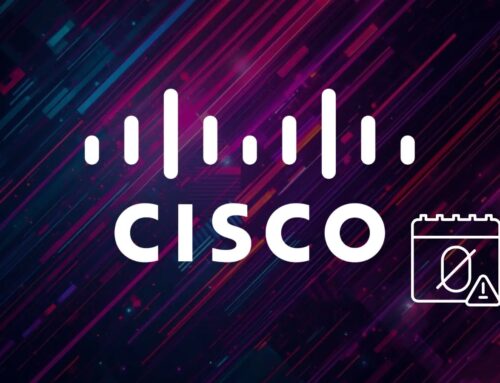
Magento and Adobe SessionReaper Vulnerability Exposes Thousands of Online Stores to Automated Attacks
Magento and Adobe SessionReaper Vulnerability: A Critical Threat to E-commerce
The digital storefronts of thousands of online businesses powered by Magento and Adobe Commerce face an unprecedented peril. A recently disclosed vulnerability, dubbed “SessionReaper,” highlights a sophisticated attack vector capable of compromising customer data, manipulating transactions, and undermining the very foundation of e-commerce security. This isn’t just about data breaches; it’s about automated attacks leveraging session fixation to seize control and exploit businesses on a massive scale. As an expert cybersecurity analyst, I’ll dissect this threat, explain its mechanics, and provide actionable remediation strategies to safeguard your digital assets.
Understanding the SessionReaper Vulnerability
The SessionReaper vulnerability, while not a CVE in the traditional sense of a specific software flaw, describes a class of attacks that exploit weaknesses in session management within web applications. In the context of Magento and Adobe Commerce, this refers to vulnerabilities that could allow attackers to hijack or manipulate user sessions. Imagine a customer logging into your store, and without their knowledge, an attacker successfully takes over their session, gaining access to their account, payment details, or even making unauthorized purchases. This is precisely the danger posed. Such attacks often leverage techniques like session fixation, cross-site scripting (XSS), or inadequate session expiration policies.
The severity of this threat is underscored by the broader context of cybercrime, as evidenced by the U.S. Department of the Treasury’s recent sanctions against cyber scam centers in Southeast Asia. These operations collectively siphoned over ten billion dollars from American victims in 2024, often through sophisticated social engineering and virtual currency investment scams. While not directly linked to SessionReaper, this highlights the immense financial motivation driving cybercriminals and their readiness to exploit any weakness, including those in critical e-commerce platforms like Magento.
How SessionReaper Attacks Unfold
A SessionReaper attack typically involves an attacker gaining control of a legitimate user’s active session. This can happen through several means:
- Session Fixation: The attacker tricks the user into using a session ID pre-determined by the attacker. Once the user authenticates with this ID, the attacker can then use the same ID to impersonate the user.
- Cross-Site Scripting (XSS): If a Magento or Adobe Commerce site is vulnerable to XSS, an attacker could inject malicious scripts into web pages. These scripts could then steal session cookies, allowing the attacker to hijack the user’s session.
- Lack of Secure Cookie Attributes: If session cookies lack crucial attributes like <strong”>HttpOnly (prevents JavaScript access to the cookie) and <strong”>Secure (ensures cookie is only sent over HTTPS), they become easier targets for exploitation.
- Weak Session Management: Inadequate session timeout policies, predictable session IDs, or lack of IP address correlation can make sessions more susceptible to hijacking.
Once a session is compromised, the attacker essentially becomes the legitimate user. This opens the door to a myriad of malicious activities, including:
- Accessing sensitive customer information (names, addresses, payment details).
- Performing unauthorized purchases or modifying existing orders.
- Defacing store content or injecting malicious code.
- Gaining administrative access if an admin session is compromised.
Remediation Actions for Magento and Adobe Commerce Users
Protecting your e-commerce platform from SessionReaper-like attacks requires a multi-faceted approach, focusing on robust session management and overall web application security:
- Implement Strong Session Fixation Protection: Ensure that a new session ID is generated upon successful user authentication. This invalidates any pre-existing session IDs and prevents an attacker from leveraging a fixed ID.
- Regularly Patch and Update: Keep your Magento or Adobe Commerce installation, along with all extensions and themes, updated to the latest stable versions. These updates often include critical security fixes for underlying vulnerabilities that could enable session hijacking.
- Harden Web Server and Application Configuration: Configure your web server (e.g., Nginx, Apache) to enforce secure session cookie attributes, including <strong”>HttpOnly, <strong”>Secure, and <strong”>SameSite.
- Employ Web Application Firewall (WAF): A WAF can detect and block common web-based attacks, including XSS and SQL injection, which are often precursors to session hijacking.
- Implement Content Security Policy (CSP): A strong CSP can mitigate XSS attacks by restricting the sources of content and scripts that a browser can load.
- Educate Users and Admins: Encourage the use of strong, unique passwords and multi-factor authentication (MFA) for all user accounts, especially administrative ones. MFA significantly reduces the risk of account takeover even if credentials are compromised.
- Regular Security Audits and Penetration Testing: Proactively identify vulnerabilities in your Magento or Adobe Commerce platform through independent security audits and penetration tests.
- Monitor Session Activity: Implement robust logging and monitoring for unusual session behavior, such as multiple logins from different IP addresses within a short period, or rapid changes in user activity.
Relevant Tools for Detection and Mitigation
Leveraging the right tools is crucial for identifying and mitigating vulnerabilities that could lead to SessionReaper attacks. While some of these tools may not specifically target “SessionReaper” as a named vulnerability, their capabilities are essential for addressing the underlying weaknesses.
| Tool Name | Purpose | Link |
|---|---|---|
| OWASP ZAP (Zed Attack Proxy) | Comprehensive web application security scanner for identifying various vulnerabilities including XSS, SQLi, and session management issues. | https://www.zaproxy.org/ |
| Acunetix | Automated web vulnerability scanner that provides detailed reports on security flaws in web applications. | https://www.acunetix.com/ |
| Burp Suite Professional | An integrated platform for performing security testing of web applications, highly effective for manual and automated vulnerability discovery. | https://portswigger.net/burp |
| Nessus | Vulnerability scanner that can detect misconfigurations and known vulnerabilities in web servers and underlying systems. | https://www.tenable.com/products/nessus |
| Cloudflare WAF | Cloud-based Web Application Firewall offering protection against a wide range of web attacks. | https://www.cloudflare.com/waf/ |
Conclusion
The threat posed by “SessionReaper” vulnerabilities to Magento and Adobe Commerce platforms is significant and requires immediate attention. These types of attacks, by exploiting weaknesses in session management, can bypass traditional security measures and lead to severe data breaches and financial losses. By understanding the mechanisms of these attacks and implementing robust remediation strategies—including strict session management, regular updates, WAF deployment, and continuous security testing—e-commerce businesses can significantly bolster their defenses and protect their customers and their bottom line. Proactive cybersecurity is not a luxury; it is an essential operational requirement in today’s threat landscape.





